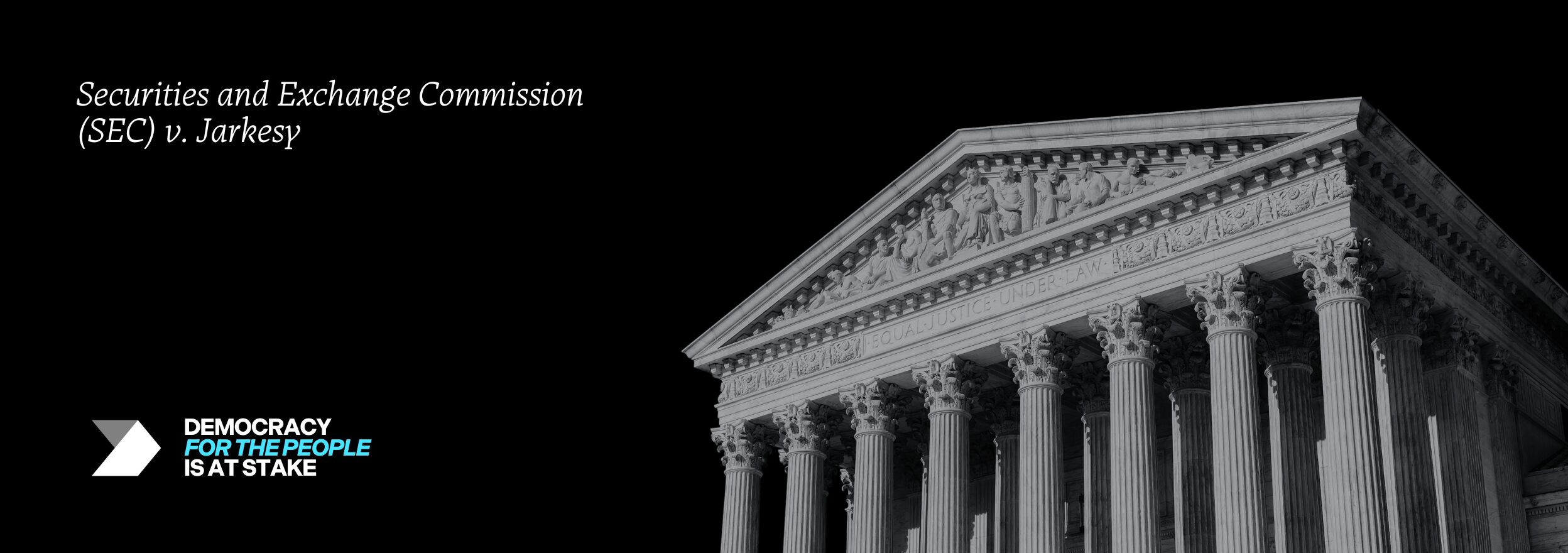
A federal appeals court recently dispensed with years of administrative process and precedent with a ruling that will, if it stands, hamper the Securities and Exchange Commission’s (SEC) ability to regulate industry and will undermine essential oversight.
Plaintiffs in this case seek to hamstring the SEC’s enforcement abilities with three separate, dubious claims that the Supreme Court will decide:
- if the SEC’s long-standing use of administrative law judges (ALJs) to adjudicate fraud claims violates the Seventh Amendment right to a jury;
- if laws that allow the SEC to enforce through agency adjudication rather than filing a lawsuit violate the “nondelegation doctrine;” and
- if Congress violated Article II of the Constitution by creating structures where both an agency-head and officers like ALJs have for-cause removal protection.
SCOTUS RULING
On June 27, 2024, the U.S. Supreme Court issued a 6-3 ruling in Securities and Exchange Commission (SEC) v. Jarkesy that hamstrings the SEC’s ability to protect people and communities and may put people who rely on protections from other federal agencies at risk. Find out more here.
WHAT’S AT STAKE
An unfavorable outcome on any of the three arguments advanced in this case would provide yet another tool to attack, delay, and hamstring the ability of agencies to protect the people and communities they were created to serve by using ALJs.
ALJs are not unique to the SEC; a decision concluding their role is unconstitutional could affect the way rights are protected across the government. ALJs are a role that Congress established to help ensure that:
- Competition in our economy is fair
- Consumers are protected from unfair, deceptive, or abusive practices
- Polluters comply with environmental laws and regulations
- Workers are protected from unlawful termination and discrimination
- Social Security benefits are fairly distributed each year.
ALJs at the Social Security Administration alone hear more than a half a million cases each year, and there are millions of ALJ adjudications each year across the over-30 agencies that employ them. The federal government, as we know it, could not operate without the daily work of ALJs.
WHO IS INVOLVED:
People Defending Progress:
Legal scholars across the ideological spectrum weighed in to the Court to show that each of the attacks in this case is baseless—including in a brief Democracy Forward submitted on behalf of originalist scholar Jed Shugerman.
Extremists Attacking Democracy:
Several far-right legal groups—including the Cato Institute, Americans for Prosperity Foundation, and New Civil Liberties Alliance—many of whom receive funding from extremist Leonard Leo-backed organizations like DonorsTrust and The 85 Fund weighed in against the SEC’s authority at the Supreme Court.
In addition, John Eastman, who was recently indicted alongside former-President Trump for alleged election subversion efforts in Georgia, is representing one of the organizations who submitted a brief undermining democracy in the case.